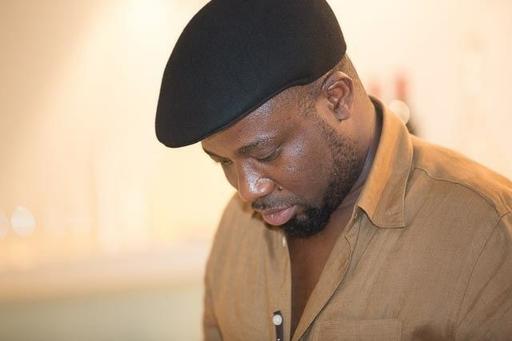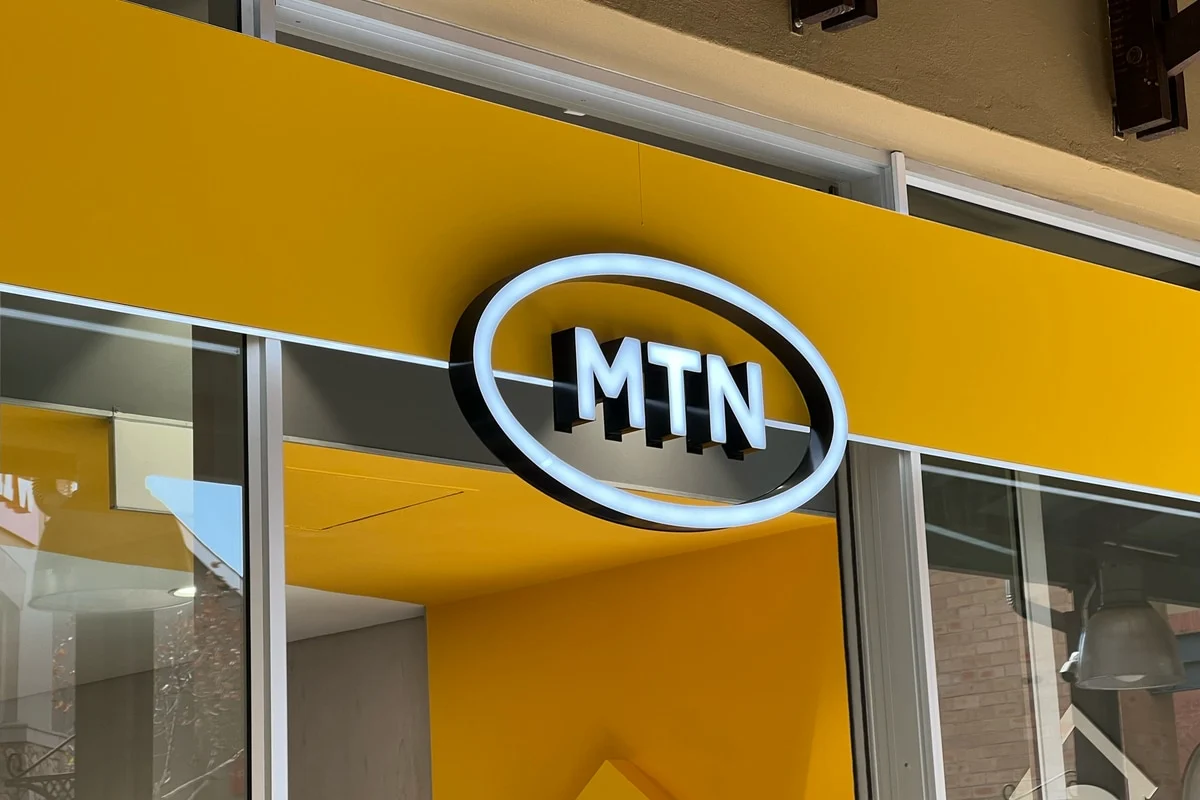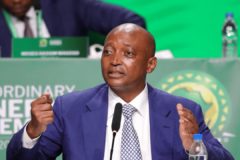Eric Osiakwan is part of the vanguard of entrepreneurs who were active in the early years of broadband technology enabling the launch of more types of startups. The angel investor who was born in Accra, where he still makes his home, has invested in eight companies based in six African countries, including Clak Impressions, Teranga Solutions, and MyeCampus.
“[Eric’s] one of the few people I know who has more job titles [than] I do,” Ethan Zuckerman, Director of MIT’s Center for Civic Media and teacher in the Institute’s Media Lab, wrote of Eric on his blog. Eric is the co-founder of Angel Fair Africa – an event that brings investors and entrepreneurs together; director of Ghana Cyber City – an initiative to build a technology hub for West Africa; and Managing Partner of Chanzo Capital – an early stage investment firm, to name a few. Eric is also an alumnus of the Berkman Center for Internet & Society at Harvard.
The technology sector has been one of the most exciting to watch across Africa over the past decade with the rise of mobile money, debates on the need for involvement of wealthy Africans as investors in technology companies, and proliferation of broadband connectivity. Mr. Zuckerman stated in an email correspondence that, “Eric helped bring about one of the first wireless Internet Exchange Points (IXPs), allowing local networks to exchange traffic in Ghana [and other African countries] without routing it through the US or Europe. He’s been a dedicated researcher and expert on the cable networks that connect Africa to the rest of the world, advising dozens of investors and companies on connectivity questions. Most recently, he’s emerged as one of the key people trying to help African internet startups find international funding and audiences.”
Mr. Osiakwan and I had a chance to sit down and discuss his work. The following is edited for clarity and length.
Kwame Som-Pimpong: You are one of the few people who have worked on the infrastructure and software side of the technology space. What’s the transition like moving between these two verticals?
Eric Osiakwan: When I started this work, people connected to the internet using dial up modems. It was exciting at that time when you first got connectivity. I remember we would listen to the sound of the modem and that sort of stuff, which was fun, but with time, we started to realize connectivity was very slow and part of the reason was that we were using only satellite connectivity that was very expensive and had very high latency.
Then, we started zooming in on submarine cables, and I was involved in a team that brought the first submarine cable to Kenya and East Africa after we did an open access study for The World Bank which was very ground-breaking and also provided a lot of impetus for broadband around the continent, and led to so many other fiber cables being built, both submarine and terrestrial that lit up the continent. We’re still not there in terms of speed, but there’s enough broadband that is fueling the new creative industry where young entrepreneurs are writing code and are developing all these interesting ideas that are solving local problems and creating businesses.
I think I’m one of the lucky guys to be a trans-generational leader, in that, now, I’m taking my experience from my previous work with a lot of internet service providers, and reinvesting those resources back into this new entrepreneurs, now, in the creative economy. We’ve moved from the consumption of technology where we just connected and people were having a great time doing Facebook and Google. Now, they are creating new businesses. We’re beginning to create our own technology. I think this is going to have a big impact on African economies because this is going to be a new industry.
KS: What has been the hardest thing you have done?
EO: I think the hardest thing has been to get African leaders and governments to pay attention to this whole revolution that is happening on the continent that needs an enabling environment in terms of infrastructure, legal regime, policies, supportive ecosystem, etc. Like I said, I think we managed to be successful to get unto the agenda of the African Union and to get it unto the agenda of most governments. I contributed to a World Bank study that looked at the impact of broadband on GDP growth — that created a level of connecting broadband to something as significant as GDP.
We need to extrapolate it further to look at how it affects development, health, and education. We know that it does, but there needs to be some way of measuring it, which is a much higher order task. So at this point, there’s a clear understanding that there’s a correlation, but it’s difficult to establish what the causality is, because sometimes if people have more disposable income, they can buy more broadband and if they have more broadband they can have more disposable income. So, it’s just sort of a knock-on effect.
I think that has been the hardest thing. The awareness is still not exactly there because African governments and leaders will tell you, “We have other priorities.” To some extent, there’s still the thinking that, “Okay we need to give water and electricity and all the basic stuff before internet.” But again, the internet should be seen, or broadband should be seen as a productivity tool that can empower people. We’ve made some impact here, but we still have ways to go.
The other most difficult thing now, is just how to attract investment into the startup space. As I said, to a very large extent, most people don’t see this as a proven industry yet. It’s still in its very early days. People look at it differently as opposed to when the industry becomes a bit more mature, and things are clearer.
KS: What have been some of the most impressive teams you have seen on the continent?
EO: One of my companies in Ghana, and was started by three guys I met when they were in college, at some point around the MIT $50K Competition in Ghana called the Ghana New Ventures Competition. Their startup then failed but right after college they started this new company together and reached out to me. Now, I’m part of the company and it is growing very well. It’s turning over $12 million now, and I’m beginning to invest in other companies with them. For example, one of the founders is investing in one of the startups that I’m investing in, so it’s beginning to happen. I think there will be more of such activity.
I’m also collaborating with some of my own colleagues who have their own funds and they’re also doing their own investments, but like you said, the foundation of this is to crack the first nut right? I’m trying to get the investing or the tech community in the US, both on East and the West Coast to see the opportunities on the continent. I think they see now that this innovation is happening globally, as they’ve seen what is happening in South East Asia and what’s happening in Africa, but a lot of the time, people are like, “Okay, we see something going on there, but what do we do?”
What I’m hoping to do is put out the word that there are people doing stuff on the continent and they’re people you can collaborate with. They’re people you can for want of a better word, see are doing something. It’s not just me. There are people like Pule Taukobong with Angel Africa Network, Jason Njoku in Nigeria, and Mbwana Alliy and Erik Hersman with Savannah Fund in East Africa. You also have Bret Commaille of AngelHub Ventures in South Africa, Dan Guasco of Team Africa Ventures and accelerators like Seed Engine in Joburg, MEST in Ghana, LeadPath and 440NG in Nigeria and 88mph in SA and Kenya. So, my approach now is to try and connect these to the rest of the world. If you look at the Angel Fair Africa event that I organise, the next of which is coming up in Accra, Ghana on the 5th of November 2015 — that’s part of what I’m trying to do now. I’m trying to get investors from outside the continent to start coming to the event because we give them an opportunity to see really what’s going on in the continent and begin to connect with entrepreneurs directly, but also connect with other local investors.
KS: What do you make of President Obama and Kenyatta hosting the Global Entrepreneurship Summit (GES) in Nairobi, Kenya recently?
EO: They could not have chosen the right location and time for this. In my KINGS (Kenya, Ivory Coast, Nigeria, Ghana and South Africa) concept, Kenya is first among equals – The KINGS countries are the leading lights of the African innovation ecosystem and Africa is the last frontier in the world. The GES, which was excellently hosted by Kenya, has cemented Africa’s reputation as the continent of opportunity and as Obama said, we are going to lead global growth through our technology innovation. I was invited as an investor to the summit alongside a host of global heavyweights in the entrepreneurship and investment world – there were a lot of connections made and we should soon start seeing the fruits of the Summit. Steve and Jean Case, who were at the summit, found it necessary to visit Ghana and Nigeria as part of their Africa tour, so I hosted them in Accra at pitching sessions and visits with interesting companies.
KS: You have recently launched a fund under Chanzo Capital. How is that going?
EO: I established Chanzo Capital in 2014 as a Mauritius GP vehicle and this year we decided to raise a micro-VC impact fund called the Chanzo Capital High-Tech, High-Growth Fund, which would invest a target of $10M in each of the five KINGS countries in early stage high-tech high-growth startups that are unleashing their creative juices using mobile web technology to address market bottlenecks and pain-points. The mobile web platform will disrupt existing markets and we are keen to invest in companies that are leading in that regard. The fund will sit alongside angel investors and accelerators to make co-investments of between $25K to 100K then follow-on with $100k to $500K once there is product-market-fit and then finally invest between $500K and $1.4M to prove the growth hypothesis of the business. We have just gotten our first soft commitment of $5M for the fund and are in discussions with a number of high net worth individuals, family offices, fund of funds and development finance institutions.
Editor’s not: Kwame Som-Pimpong is the co-Founder of Afara Global LLC. Connect with him on linkedin and follow him on twitter @kwamesompimpong





















